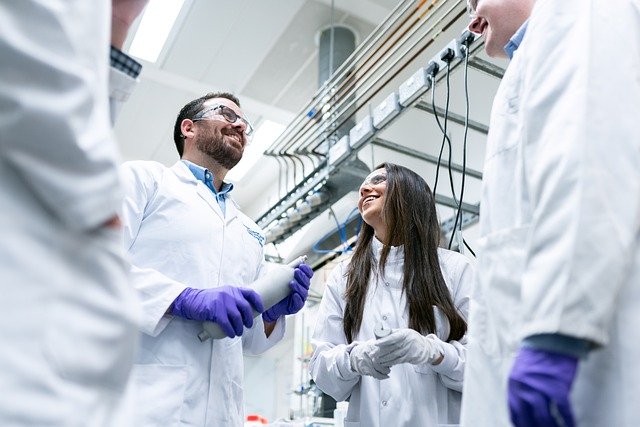
To get a pharmaceutical job, you will usually need relevant qualifications and experience in the pharma industry. Then, you'll need to begin your search for jobs in your field. Newly qualified chemists, technicians and analysts may want to look for graduate-specific roles. If you're ready to enter the pharmaceutical world but aren't sure where to start, we can help.
Working in the pharmaceutical industry is incredibly rewarding. Every day, you could be developing new life-saving drugs that will change people's lives. Today, we're going to start you on that journey by sharing some advice to help you get a pharmaceutical job. Whether you're a recent graduate or someone looking for a career change, these hints and tips should make you feel more prepared for pharmaceutical job applications and interviews.
What kind of pharmaceutical jobs are there?
The first step in getting a pharmaceutical job is figuring out what you're interested in and what you're qualified for. There are job roles throughout the different stages of drug research, development and creation that are sure to appeal to any budding scientist.
Are you more of a pharmaceutical analyst, or are you meant to be in quality control? If you're not sure, start exploring current pharmaceutical job vacancies! This can give you a good idea of the types of roles out there, and the skills required to get them. You can find our job search here, with plenty of pharma positions to inspire you.
Looking at the responsibilities in different pharmaceutical job descriptons is a great way to decide which area is the right fit for you. Once you've got a better idea of what's out there, you can concentrate on getting your dream job.
How to get a pharmaceutical job?
As will all science jobs, having the right qualifications and work experience under your belt is paramount if you want your job application to be successful. If you're curious how to get a job in pharma, then here are the basics you need!
Qualifications
Most pharmaceutical jobs require you to have a degree in a relevant subject, such as:
- Pharmacology
- Medicine
- Biochemistry
- Neuroscience
Some bigger pharmaceutical companies may even require you to have a postgraduate level qualification like an MSc or a PhD to get a pharmaceutical job. There are very few pharmaceutical jobs that you can do without degree-level education, so if you haven't already, consider enrolling in a relevant course.
Work Experience
Along with relevant academic qualifications, some pharmaceutical jobs will expect you to have relevant work experience under your belt. This could be anything from volunteering in a laboratory alongside your studies to doing a 'year in industry' placement at university. Any work you can undertake to show your passion for pharmacology will put your job application miles ahead of other applicants. If you're asking how to get a pharmaceutical job, then you might be unsure how to get pharmaceutical work experience. Looking for industry placements and internships can be a good place to start!
However, keep in mind that there are many graduate roles available, so check to see if you're already qualified.
How to get a job in pharma: pharmaceutical research
Pharmaceutical research is one of the most sought after roles in pharmaceuticals because it gives people the opportunities to research and test new drugs and medications. This is where major medical breakthroughs are made which can often lead to innovative new treatments that save hundreds of lives!
The average salary for a research scientist is £32,000, which makes these roles very appealing! To make yourself stand out in the crowd when applying for pharmaceutical research jobs, we'd recommend that you get plenty of research work experience under your belt, carry out research in your own time, and work hard to achieve a 1:1 in your degree! That may sound challenging, but that really is how to get a job in pharma - perseverance.
Pharmaceutical Jobs
